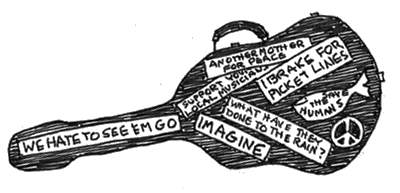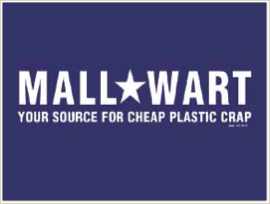


I’m
on the Friends of Five Creeks mailing list, so when a container ship
ran into the San Francisco Bay Bridge and spilled over 50,000 gallons of
oil, I began to get messages telling us what to do to help. The bird
rescuers needed towels and sheets to wrap the birds in for transport.
Claudia had gotten teary when she saw the photographs of oiled birds—I
didn’t until I got down to the marina with my old towels and sheets and
saw all the people turned out to help them. A few days later I delivered
a load of linens and paper bags my swimming/memoir-writing friends
brought to me at the YMCA, and I saw how the operation had expanded.
(The paper bags are for the dead birds.)
Matier and Ross,
in their SF Chronicle column, pointed out that as the ships keep
getting bigger, this will happen more often. Nobody I’ve read has
pointed out that the more stuff we buy that’s made in other places (and
most stuff is, these days), the more and bigger ships will be running
into our bridges or whatever. I wrote a little song about that, and as
soon as I get it scanned I’ll put the lead sheet on this blog; in the
meantime, here are the words. I sing it a lot around this time of year,
as holiday shopping ramps up.
THE NEW TOY
The toy on the TV looked like a dream
It spun and it whistled and it blew out steam
I took my allowance and bought it at the store
And the toy was such a bore that it made me want to snore
If you don’t need it don’t (snap) buy it
If you don’t need it don’t (snap) buy it
Look at it, think about it, ask about it, try it,
And if you don’t need it don’t (snap) buy it
I took it to my friend’s house to show what it could do,
It couldn’t do much but at least it was new
My friend said “Wow! I’ve been waiting to try one!”
But after five minutes she said “I wouldn’t buy one.”
Another five minutes and the thing wouldn’t start
Ten minutes more and it fell apart
My friend grabbed a piece and measured each dimension
Said, “It’s just the part I need to finish my invention!”
She glued in the piece to the gadget she was making
It started with a rumbling and a whirring and a shaking
It climbed up the wall and made a whooping noise
And she’d made it herself out of seven broken toys
©1997 by Nancy Schimmel
Now for some good news. I got an email from the Center of Race, Poverty and the Environment
about some California folks who are trying to fend off a huge dairy
operation in their neighborhood. Like any monoculture, big dairies
pollute a lot. The group would get the prize, if there were one, for
having the perfect name for a grassroots anti-pollution group: The
Association of Irritated Residents (Claudia pointed out that the
acronym, which I hadn’t thought out yet, makes it even more perfect). I
emailed my appreciation of the name to Luke Cole, the director of CRPE,
and he emailed back that it made court appearances fun, as they watched
judges trying not to smile as they said it. I’d met Luke when he gave a
talk at Carl Anthony’s class on Race, Poverty and the Environment at Cal
a bunch of years ago. And the Association of Irritated Residents has
had some success:
Forcing Polluters to Internalize the Costs of Their Pollution
In
October, a federal judge in Fresno handed CRPE's clients the
Association of Irritated Residents a powerful tool: in a
precedent-setting decision, the judge ruled that the Vanderham Dairy had
to purchase offsets for its air pollution emissions, and also install
the best available air pollution control technology. The first in a
series of Clean Air Act enforcement cases masterminded by Air Project
Director Brent Newell, the Vanderham decision will allow CRPE to force
all mega-dairies constructed since 2004 to purchase offsets (that is,
buy credits equivalent to the amount of pollution the dairy will emit,
so that there is no net increase in air pollution) and install the best
available technology. This decision will affect a number of other
enforcement actions against mega-dairies that CRPE has in the pipeline -
stay tuned!
I got to know Carl Anthony in a breakout group on environmental justice at the Eco-city Conference in Berkeley in 1990. He was head of Urban Habitat in those days, then put in some time in New York at the Ford Foundation, and is now holed up in Berkeley writing a book
So
I’m sitting here in Jimmy Bean’s, working on my blog, and a woman
heading for the corner table says “Oh, you’ve got a Mac!” (Another
village: Mac users.) I say, “Yeah. I’m blogging about the oiled birds.”
Turns out she has done wild bird rescue herself. Her name is Wilma, and
she runs a website called Managing Wholes: creating a future that works.
It’s about land management, which might sound dull, but not when Wilma
talks about it. She says most of the Nevada desert was not desert till
poor grazing practices killed the native grasses, but it’s not just
overgrazing that does it. So does undergrazing, because the seeds need
to be trampled down into the soil to reach the part that’s moist enough
for them to germinate in. So we don’t need to remove grazers entirely,
we just need to keep them moving. Fact from the website: In weight and
in dollar value, the United States’ biggest export is topsoil, washed
down the rivers and into the sea. Check it out.
©2007 by Nancy Schimmel


Tuesday, November 13, 2007


DISASTER REPORT






